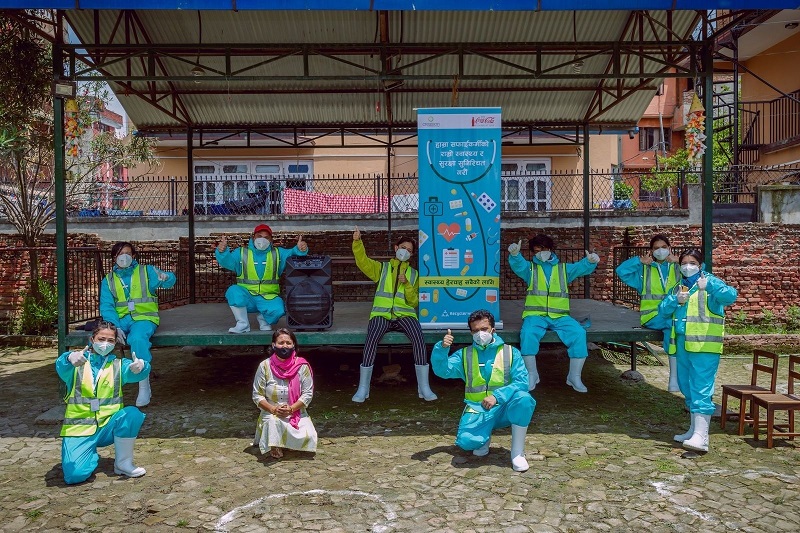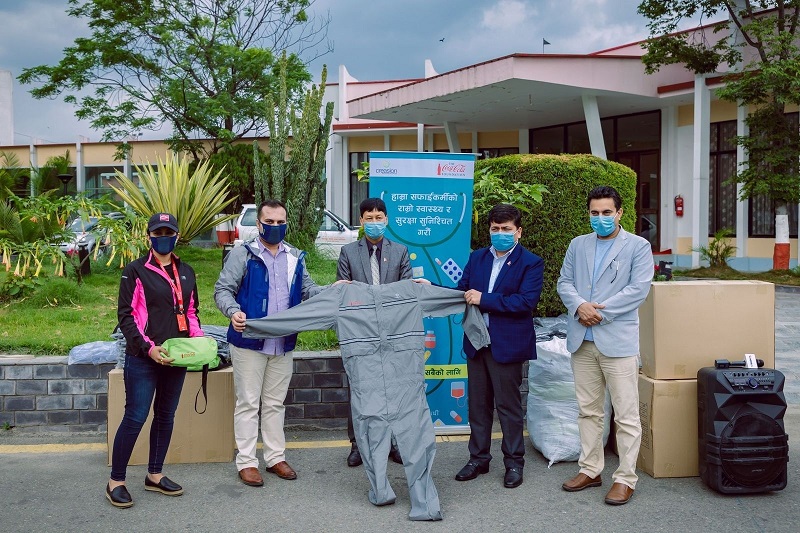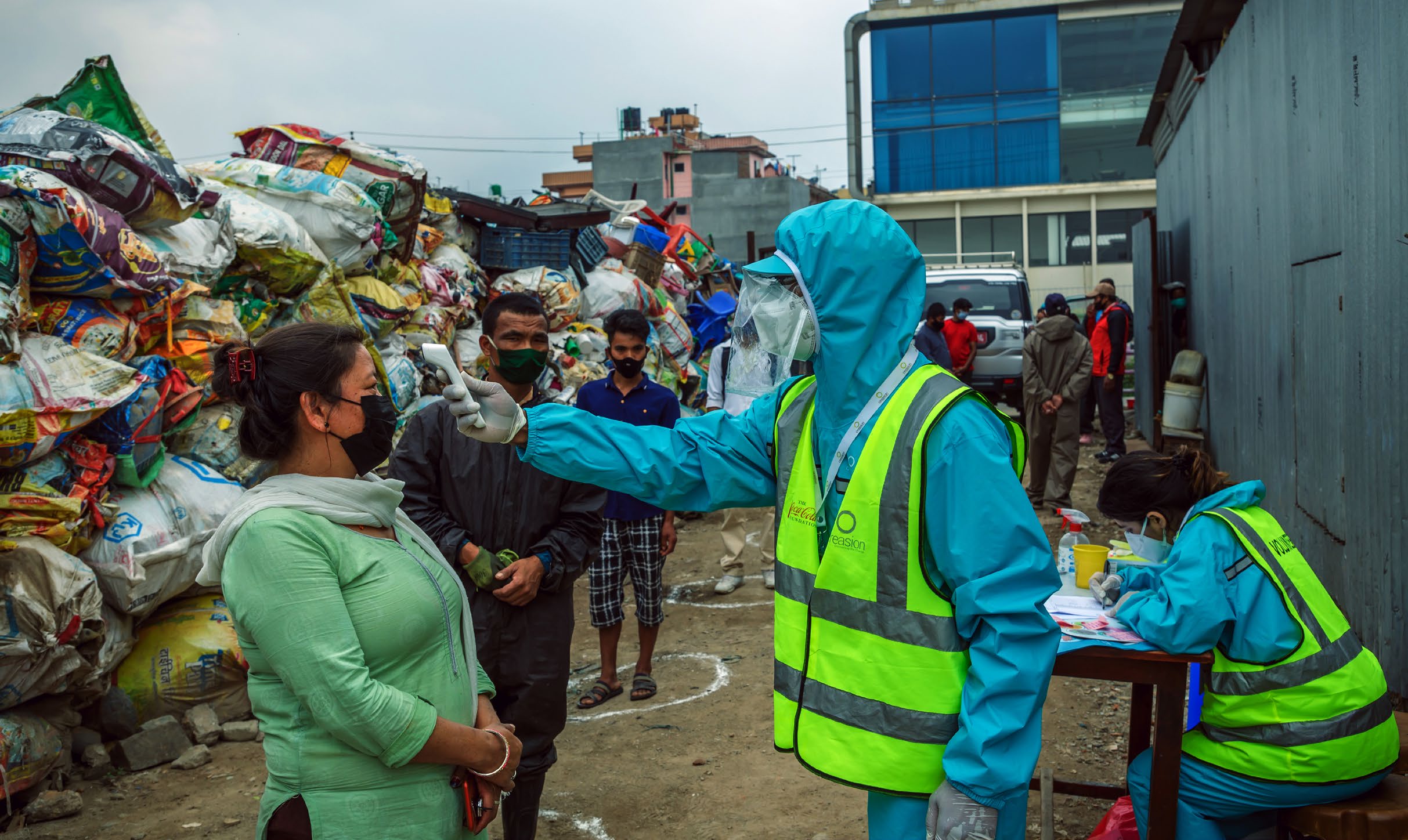Ensuring safety and livelihood of waste workers
Kathmandu
Waste management is important for a clean and healthy environment.
Its importance has never been more than during the current coronavirus pandemic.
But waste workers across the nation are facing greater risk to their health and livelihood as the country remains under lockdown and economy is slowing. To address the situation of waste workers, the Centre for Research and Sustainable Development, Nepal (CREASION) has initiated a Waste Worker Emergency Relief Project (WWERP) to provide for them during the lockdown.
A joint initiative of CREASION and The Coca-Cola Foundation, it aims to support 3,200 vulnerable waster workers residing in Kathmandu, Chitwan and eastern Nepal, according to Pratistha Shrestha, Program Manager, CREASION.
The project was born after CREA- SION, that works in the waste management sector, reached out to waste workers and learnt about their plight during the lockdown, as per Shrestha. The Coca-Cola Foundation reached out to CREASION “as they too were looking for ways to support different communities”, she added.
The project kicked off on May 15 delivering safety awareness and distributing relief materials to 150 waste workers in Buddhanilkantha.


They have chosen to provide protective jumpsuits over PPE to waste workers as “we felt PPE wouldn’t be the right gear for them” as per Shrestha.
She added, “Before our programme started, various organisation had donated PPE to waste workers but they would tear easily as waste workers’ work come with lots of physical movements. PPE also lack pockets, and waste workers would put their hands inside PPE to reach their pockets for phones or cards, which subsequently increased the risk of contamination.”
Thus, they chose protective jumpsuits designed to meet safety standards after consultations with doctors and experts concerned. It has pockets as well as “reflectors to keep the waste workers safe as there have been cases where the waste workers have been victims of hit-and-run due to poor visibility on the roads as they tend to work in early morning and evening.”
Finally, ration package — each of 20 kg rice, salt, sugar, lentils, oil and other non-perishable food items and “are prepared to suffice for a month considering the waste workers have an average of five family members” — are given as per Shrestha.
A team of 11 members have been working every day in the Valley at present. To ensure everyone’s safety, they take guidance of Dr Nimesh Khanal, medical officer at CREASION.
So, how does he ensure safety? Dr Khanal has prepared a safety modality under which all infrastructure of the organisation are disinfected with sodium hypochlorite daily. At the end of the work day, all the safety gears used by the team members are washed in diluted sodium hypochlorite. He has also been giving safety trainings to CREASION members on safe handling of everything.
On the field Dr Khanal informs and makes the waste workers aware about COVID-19 along with medical counselling. This takes places following the protocol of social distancing “where everyone is made to stand in a line with a gap of six feet and everyone’s body temperature is screened”.
To ensure proportional distribution of relief packages, they have partnered with different waste management organisations. “They have provided us with the list of waste workers in their network and helped in facilitating the process of distribution of the materials to right beneficiaries,” claimed Shrestha.
The distributions in the Valley were conducted in the presence of the local government representatives of Kathmandu Metropolitan City and Lalitpur Metropolitan City.
Shrestha is happy to be a part of this project as she said, “Despite doing a phenomenal job of keeping the community clean, waste workers are often deprived of the respect they deserve. I am blessed to work with them on the field. They are the ones who deserve the support.”
Dr Khanal added, “These waste workers are innocent and humble.
Whenever I see them smiling or the satisfaction I see on their face from my counselling, it really makes me feel good.”
And they duo urged the public to support these workers by reducing the production of waste at home.
They shared in unison: “There’s a high chance of generation of hazardous waste via masks, gloves et cetera, that can carry the coronavirus, further risking the health of waste workers, so, we can segregate waste properly to help them in their job and keep them safe.”
A version of this article appears in e-paper on June 17, 2020, of The Himalayan Times.






